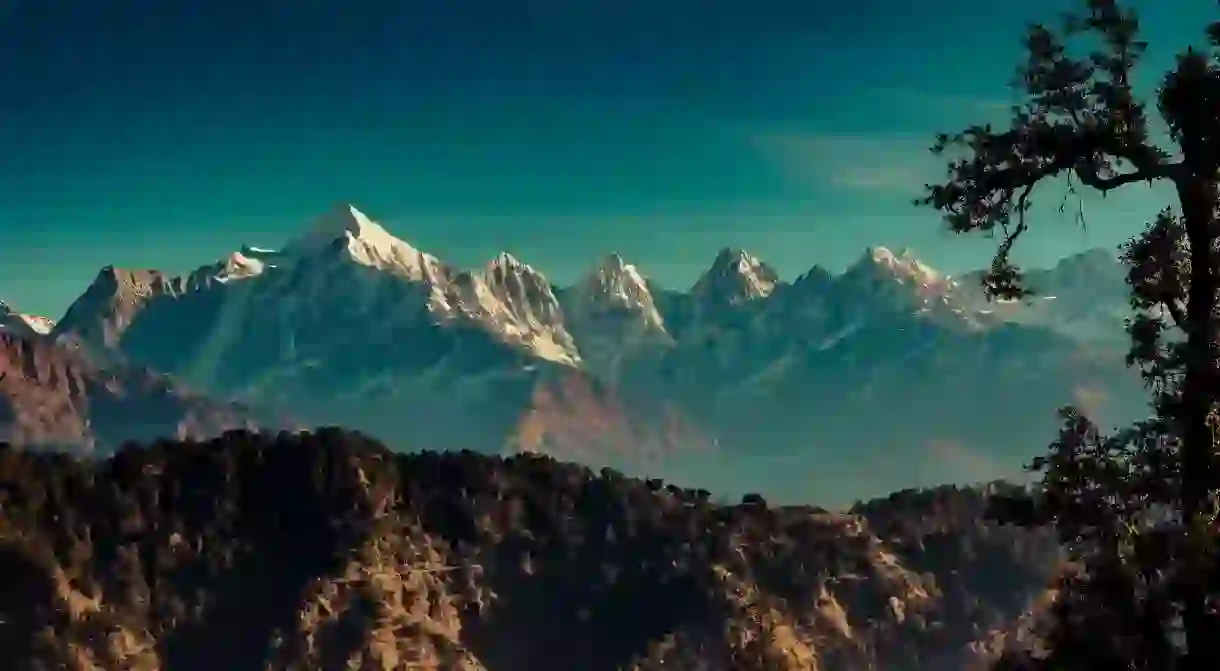The Most Challenging Treks in Nepal

You don’t have to be capable of scaling Mount Everest to enjoy many of Nepal’s outdoor pursuits. However, some trekking routes here are only suitable for those with plenty of experience. Whether lengthy, cold, high-in-altitude or a combination of these, here are our picks of the most challenging treks. But you know what they say – no pain, no gain.
Planning an action-packed trip to Nepal? Book yourself onto Culture Trip’s 11-day Nepalese adventure, where you’ll ride a rickshaw through Kathmandu, white-water raft on the Seti River and encounter Bengal tigers in Chitwan National Park.
Three Passes Trek
Natural Feature, Park, Hiking Trail

This very challenging trek crosses three passes of over 5,000m (16,404ft) – Kongma La, Cho La and Renjo La. It passes through the Everest region, starting and ending at the same point (Lukla), so it’s a good option for experienced trekkers who have perhaps already done Everest Base Camp (EBC) and are looking for a greater challenge. It also visits Kala Patthar, for incredible views of EBC, and the vibrant Gokyo Lakes.
Dhaulagiri Circuit
Natural Feature, Hiking Trail

The circuit around Mount Dhaulagiri is often called the most challenging trek in Nepal for several reasons. First, it’s a camping trek, meaning there are no comfortable (or even basic) lodgings to retreat to at the end of the day or if the weather turns bad. Second, it’s necessary to spend three days in a row trekking above 5,000m (16,404ft). At that altitude, many travellers experience a light head, racing heart and difficulty sleeping. And thirdly, you’ll often have to trek and sleep in snowy conditions. Dhaulagiri may not be the most comfortable trek out there, but if you’re very fit, very experienced and up for a very big challenge, it’s unforgettable.
Upper Dolpo Trek
Natural Feature, Hiking Trail
Dolpo, in Western Nepal, is one of the most remote places in the country. While the lower parts are relatively accessible, Upper Dolpo requires some careful planning and a high-cost permit to enter, at US$50 per day, for a minimum of 10 days. Trekking infrastructure is practically non-existent, so you’ll need to carry in all food, equipment and tents. It is also mandatory to hire an experienced guide while trekking here. There are also three 5,000m-plus passes to cross, and several nights spent at above 3,500m (11,483ft). But, trekking in Upper Dolpo is a once-in-a-lifetime experience, and, with the right preparation, the rewards are much greater than the struggles.
Nar Phu Valley
Natural Feature, Hiking Trail

The wild Nar Phu Valley was closed to trekkers as recently as 2002, making a visit here all the more special. It lies between the more visited Annapurna and Manaslu regions. Long trekking days and steep ascents make this route a real challenge, with the highest elevation at 5,240m (17,192ft). As the Nar Phu Valley is sparsely inhabited and contains no trekking infrastructure, the distances between possible places to stay are long. But this is a beautiful trek for its sense of solitude, as well as the incredible mountain landscapes and the colourful Tibetan Buddhist chortens (shrines) that Nar and Phu are famous for.
Rolwaling with the Tashi Lapcha Pass
Natural Feature, Hiking Trail
The Rolwaling Valley sits between Langtang and the Khumbu region. The trek starts at the edge of the Gaurishankar Conservation Area, crosses the very high Tashi Lapcha Pass and ends in Lukla. The Rolwaling Valley is not often visited by foreign trekkers, so you’ll likely have trails all to yourself (until you cross into the Everest region, that is). It is a very challenging trek, however, as the Tashi Lapcha Pass is extremely high and strenuous and usually covered in snow.
Manaslu Circuit Trek
Hiking Trail, Natural Feature

Although the Manaslu Circuit region has seen an increase in development in recent years, which has made the trekking infrastructure more extensive, it is still a remote route to choose from. The trek will take you around Manaslu, the world’s eighth highest mountain, on a route dotted with teahouses, suspension bridge crossings and varied scenery – from subtropical forest to Himalayan foothills and the challenging snow-covered pass of Larkya La, at 5,125m (16,814ft).
Kanchenjunga Trek
Natural Feature, Hiking Trail
The Kanchenjunga Trek, in eastern Nepal, is one of the longest treks in the country at around 27 days. You’ll circumnavigate Mount Kanchenjuna, which at a height of 8,586m (28,169ft) which is the third-highest mountain in the world, straddling Nepal and India. Start at the north of the mountain trekking south, you’ll cross the Mirgin La en route. You’ll find that not so many visitors make it out to the east of Nepal, but this is considered one of the finest treks in the country.
Poon Hill
Natural Feature, Hiking Trail

Alright, this one isn’t actually very hard compared to others on this list, but it is much harder than many people realise. The three-to-five-day trek is a good one if you don’t have a lot of time to stray far from the beaten path. You’ll pass quaint villages and forest canopies before making the steep ascent up the many, many stairs which eventually take you to an altitude of 3,200m (10,499ft). Expect incredible sunrise views of the Annapurnas; just don’t underestimate those steps.
The Great Himalaya Trail
Hiking Trail, Natural Feature
The Great Himalaya Trail is a network of shorter trails that run the length of the Nepali Himalayas, connecting them all and providing a continuous trek for those up for the adventure of a lifetime. The trail is divided into a high route and a low route, passing through higher or lower elevations, respectively. This may just be the ultimate Nepal challenge, but also the ultimate adventure.













